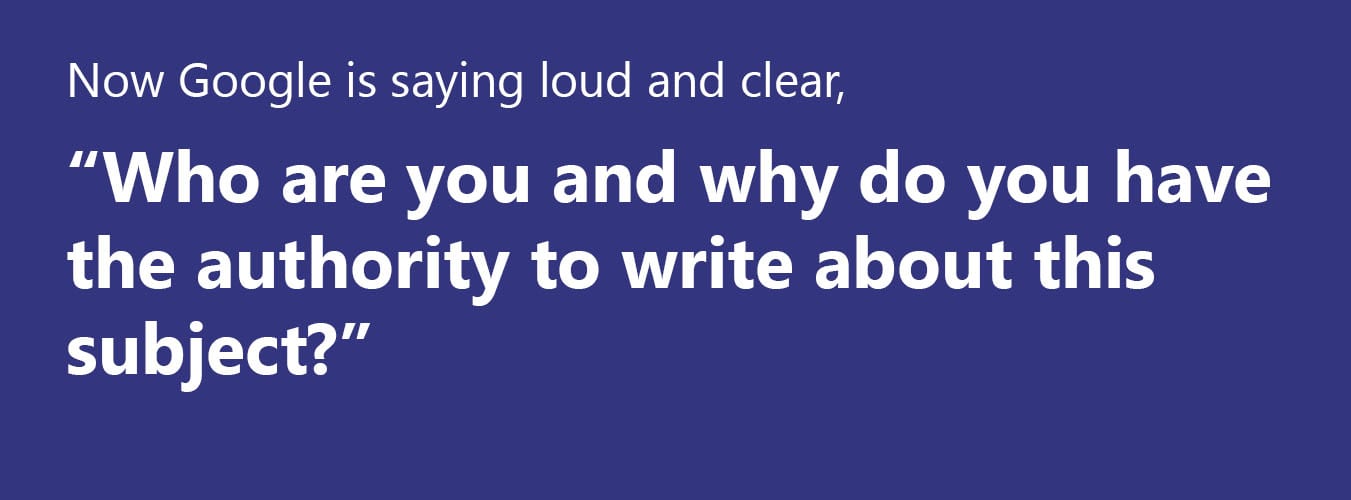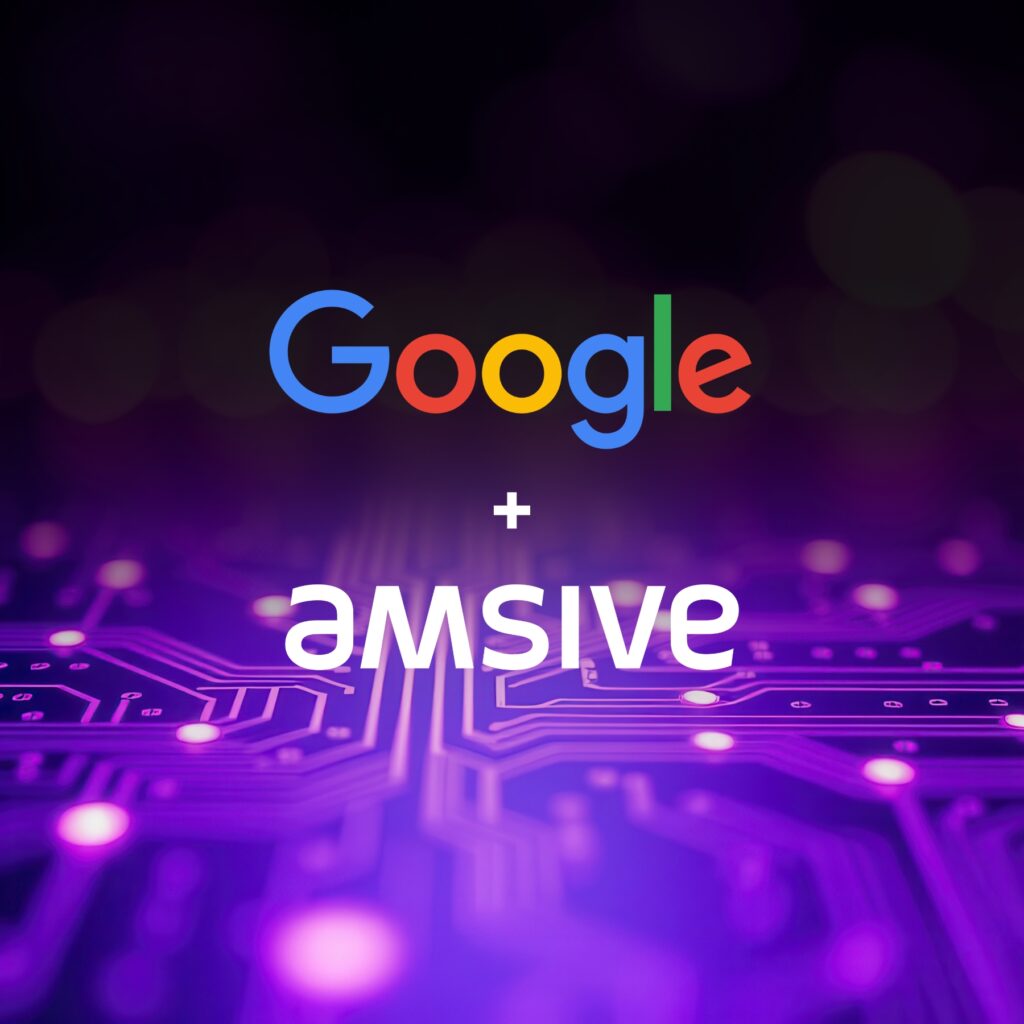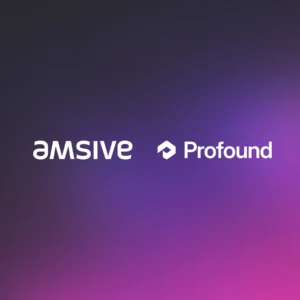It’s no secret that the primary focus of SEO in recent years has been on “quality content”. In fact, the phrase is so frequently used by Google, that it has started to sound somewhat cliché. However, when Google released its August 1st, 2018 core algorithm update, it showed how serious it was about factoring content quality into its organic rankings, and clearly indicated that perceived quality of content doesn’t come solely from the text on the page.
What is the New Google Algorithm Update Focused On?
Well-written copy, advanced vocabulary, optimized headlines, and word count alone won’t help your page rank highly if your site is not supported by what Google is referring to in its updated Search Quality Evaluator Guidelines as “E.A.T.: Expertise, Authoritativeness and Trustworthiness”.
August 1st marked a major shift in Google’s strategy for trying to reduce the visibility of all the untrustworthy information circling around the internet, a focused extension of its larger battle against Fake News focused on a specific type of content publisher.
What Types of Websites Were Affected by the Algorithm Update?
The update proved to be particularly painful to webpages in what Google is calling the YMYL (Your Money Your Life) category – pages that could “potentially impact the future happiness, health, financial stability or safety of users.” As part of the update, pages in this category became subject to markedly stricter standards than other types of web content.
Pages in this category include:
- Shopping or financial transaction pages
(Websites that allow you to transfer money or make purchases) - Financial information pages
(Sites that provide guidance on spending, taxes, retirement planning, etc.) - Medical information pages
(Providers of content about diseases, drugs, mental health, nutrition, etc.) - Legal information pages containing legal advice or information related to the law
- News articles “important for having an informed citizenry”
(Articles that contain information about local officials or government processes)
In the past, Google seemed to have largely evaluated the quality of content on these pages by focusing on on-page metrics like readability, relevant keywords, logical headlines, length of content, reading level, and content structure. On August 1st, its criteria substantially changed. Now, Google is saying loud and clear, “If your website is providing my users with content that can have a serious impact on their financial, medical, or personal wellbeing, who are you, and why do you have the authority to write about this subject?”

What Do I Need to Know if my Website was Hurt by the Algorithm Update?
What can you do about this algorithmic change, and how can you protect your site rankings from being hurt in the future? First, you need to develop an understanding of E.A.T.’s core tenets.
Here are some of the guideline set’s main takeaways:
- Do not create websites with the sole purposes of spreading harm or misinformation.
- Content creators must demonstrate experience and expertise in a topic when writing about it.
- Readers must be able to tie these content creators back to an existing positive reputation within their respective industries.
- There must be authoritative, external sources indicating that your content creators are credible authors on this topic.
- On the contrary, if the author has a negative reputation when it comes to content credibility, their reputation can work against your ability to rank.
- Positive reviews must be considered as an indicator of content quality – both on the website in question as well as on third-party review sites. Negative reviews can work against your perceived quality.
- Too many “calls to action” or indications that you are trying to sell a product can work directly against the perceived quality of your content.
What Steps Can I Take to Recover from Algorithmic Declines?
The most important thing to do is to take action to prove to Google that your website is a trustworthy and credible source of information within its sector. Gone are the days of writing anonymous content and hoping that Google will take you seriously as an author. You must now expose who is writing the content and why that person has the expertise to consult on the topic. Below are insights gleaned directly form Google’s updated Search Quality Guidelines, which can help affected to improve their performance.
5 Practical Tips You Can Use to Help Your Website Recover:
- If you don’t already have an About page, now is the time to launch one. Use this page to explain who your company is, how long it has existed, and why it should be trusted as an authority within its niche. Include mention of any relevant awards or accolades, as these are directly looked for as an indicator of quality by Google’s search quality raters.
- If you are not disclosing who writes each piece of content on your website, now is the time to start listing the names of these authors, editors and/or reviewers. You can link the names of writers to their respective biographies, or to a page detailing who they are and why they should be considered credible.
- If your website uses ads, you must indicate where the ads are and use a label such as “Sponsored Content” alongide each ad. Your ads must not be indistinguishable from the main content of the page, and your ads also must not overwhelm the user, disrupt the content, or make the page hard to use. Google also states in its Quality Guidelines that it considers websites responsible for the quality of their ads.
- Start collecting user feedback and reviews of your content. Allow your users to submit feedback about what you can do to make your content more helpful for them. Consider adding a star rating functionality to your content pieces – not just your products – to allow users (and Google) to see the extent to which your content has helped others.
- Make it easy for your users to get in touch with your business. You should disclose your business’ name, address, and phone number on your “contact” and/or “about” page(s). Your contact page information should look consistent with the naming used throughout the website and should not direct users to an unrelated company or individual.
This algorithm update represents a tectonic shift in how Google decides what deserves to be considered the highest-quality content on the internet and who qualifies as a creator of such content. In some cases, business owners who previously saw consistently-strong SEO performance may have woken up on August 1st to discover drastic drops in their organic rankings and traffic due to this new criteria.
In order to re-gain performance, major steps must be taken to prove to Google that your content can be trusted with someone’s life. After all, wouldn’t you want credible information as a content consumer?
Need further guidance on making sure your rankings don’t suffer permanently as a result of the update? Get in touch. Our team can help you ensure your site is seen as a source of valuable, trustworthy insights — no matter your industry. We also offer E.A.T. Audits specifically for websites affected by the August 1, 2018 Google algorithm update.







